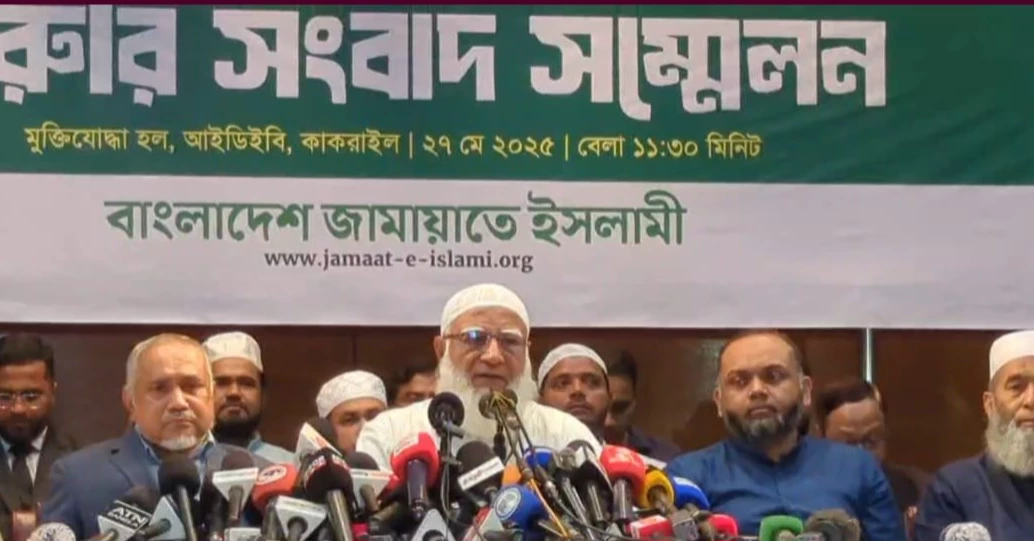Jamaat-e-Islami Ameer Shafiqur Rahman on Tuesday offered an unconditional apology to all who have been harmed by any actions of his party or its members.
“As a party, we do not claim to be above mistakes. We unconditionally seek forgiveness from all who have been harmed by any actions of our workers or the party. If our behaviour or performance has caused any pain, we ask for your pardon,” he said.
He made the remarks during an emergency press conference at the Muktijoddha Hall of the Institution of the Diploma Engineers in Dhaka, following the acquittal of Jamaat leader ATM Azharul Islam in a 1971 crimes against humanity case.
Azharul’s death sentence was overturned by the Appellate Division after a review petition.
However, in his written statement, the Jamaat chief did not categorically refer to the events of 1971 in offering the apology.
Regarding the Appellate Division’s order, Shafiqur Rahman said, “This verdict proves that truth cannot be suppressed — it pierces through the clouds and brings forth light.”
He added that the nation continues to face unresolved critical issues and urged all political parties and stakeholders to prioritize public welfare.
“We promise — if entrusted with public service by Allah’s will and the people’s support — we will end the politics of vengeance and discrimination. We will strive with all our might, alongside the people, to eradicate inequality from society,” he declared.
The Jamaat chief alleged that the party had faced severe oppression during Prime Minister Sheikh Hasina’s tenure:
“Eleven of our top leaders were judicially killed through fabricated cases, staged trials, and false testimonies.”
Speaking on Azharul’s acquittal, he described it as a triumph of justice, claiming that the charges were baseless and the trials tainted by fraud. He cited former Chief Justice SK Sinha’s book, which allegedly revealed how the judiciary and the government colluded in what he termed “cold-blooded judicial killings” rather than fair trials.
Shafiqur Rahman claimed that families of the accused were persecuted following each verdict, leaving them shattered. He argued that neither international nor domestic legal standards were followed, with the courts allegedly operating under “illegitimate influence” instead of constitutional law.
Citing a British High Court observation, he described the trials as a “genocide of justice” — not merely a “killing of justice” — asserting that multiple cases were systematically targeted. He said that Bangladesh’s courts have now recognized this as a “miscarriage of justice,” calling it “leadership genocide” aimed at decapitating the party.
“Yet, we sought no revenge — only justice,” he concluded.


